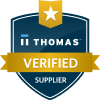Custom-made brushes with various shapes, materials, and sizes are used for different applications in almost every industry, including manufacturing, maintenance, construction, and food preparation. Specifically, brushes are most commonly used in welding, painting and coat application, thread cleaning, surface finishing, and more.
Deburring and polishing are accomplished with disk brushes, cylinder brushes or wheel brushes.. For internal cleaning and deburring, twisted-in-wire brushes are frequently employed. Meanwhile, metal back strip brushes are used for interior and exterior surface cleaning, and ferrule end brushes are for deburring and finishing. In a nutshell, industrial brushes have varying applications, and the type you choose should depend on your specific requirements.
Things To Consider When Selecting Industrial Brushes for Your Manufacturing Needs
Choosing the best brush filament can initially seem overwhelming, with many available alternatives. To help you choose the right brush, we’ve put together a list of factors to consider when selecting industrial brushes for your manufacturing projects.
Wire Filament Type and Configuration
One of the qualities that set wire brushes apart is the wire type, which varies from soft brass, bronze, aluminum and advances to high tensile strength carbon steel and stainless steel. The filament type you select should be based on the abrasive force your application requires and other vital factors, such as corrosion resistance and electric conductivity.
When it comes to wire type, the choice of filament depends on the specific application. For instance, soft brass wire is used for applications requiring a delicate touch, such as cleaning smooth surfaces, polishing jewelry, or removing light rust. On the other hand, bronze wire is a better option for removing paint and heavy rust. Finally, aluminum wire is ideal for cleaning metals like aluminum or brass.
High-tensile strength carbon steel wire is the go-to choice for heavy-duty tasks. Meanwhile, stainless steel wire is best for applications requiring resistance to corrosion and high temperatures, such as cleaning surfaces in food processing equipment.
Choosing whether the wire should be straight, twisted, knotted, or crimped is also important. For instance, twisted and knotted wires create a powerful impact and a wide surface area and are often used for cleaning up after welding and removing severe corrosion.
Surface Size
The required filament size of an industrial brush depends on the surface size that must be cleaned, prepared, or finished. For example, handheld brushes work well for minor tasks and surfaces, but are too labor-intensive for larger ones. Similarly, although toothbrush-sized wire brushes can be utilized for minute functions that don’t require motorized brushes, wheel, and end wire brushes are useful for getting into small, constrained spaces.
Rotary and cup brushes are ideal when working on large, flat surfaces. This is especially true if the area that has to be prepared is covered in rust, corrosion, slag, or other heavy materials. Since bronze or aluminum may need to be lighter to properly remove the fragments and dirt, choosing the filament type is also essential.
Wire Filament Diameter
Wire filament diameters range from 0.003 to 0.032 inches. A larger filament holder is needed to hold bigger diameter filaments.
Filament Length
The filament length significantly impacts how abrasive a wire brush will be. Longer, more flexible filaments are suitable when an application needs a gentler, less forceful brushing. For example, they are often used when cleaning delicate or intricate surfaces — such as jewelry or electronic components — to avoid damage or scratches. They are also ideal when deburring or finishing surfaces.
Conversely, shorter and more compact filaments tend to be more aggressive and stiff. This makes them suitable for applications requiring more forceful brushing. Typically, they are preferred when removing heavy rust, paint, or scale from metal surfaces. They are also better suited to remove the weld slag and prepare the surface for the next step.
Choose Quality Industrial Brushes From Cocker-Weber Brush Company
At Cocker-Weber Brush Company, we customize each brush utilizing industrial-grade and long-lasting filaments to meet your project’s needs! Not only do we create custom brushes, we can repair your industrial brushes and extend their lifetime according to your requirements. Whether we are building a new brush or repairing/refurbishing your old industrial brush, the overall brush size, trim length, monofilament type, and fill density are all customizable to meet your specific needs
Fill out the form on our website, or contact us today to discuss your industrial brush needs!



